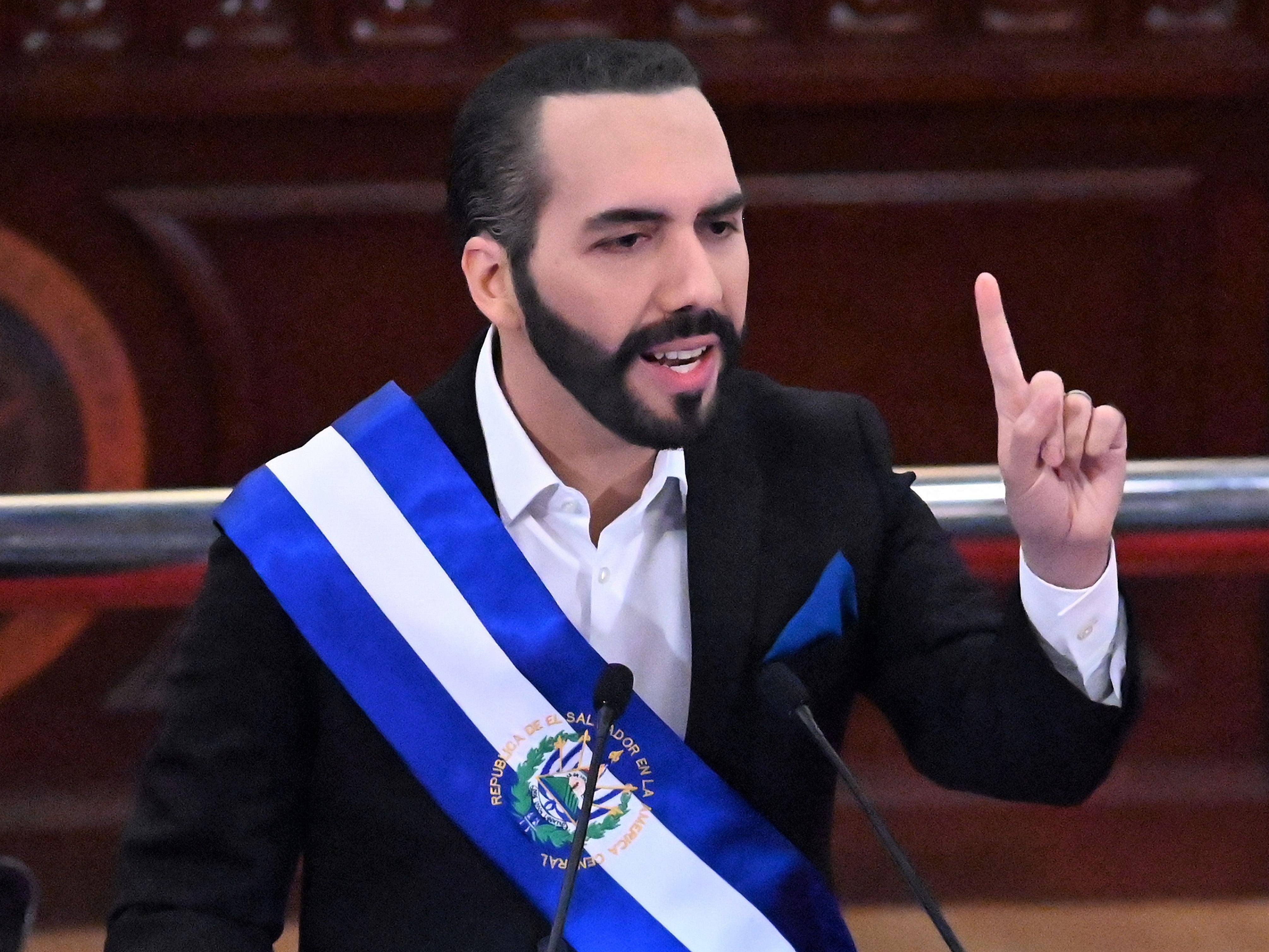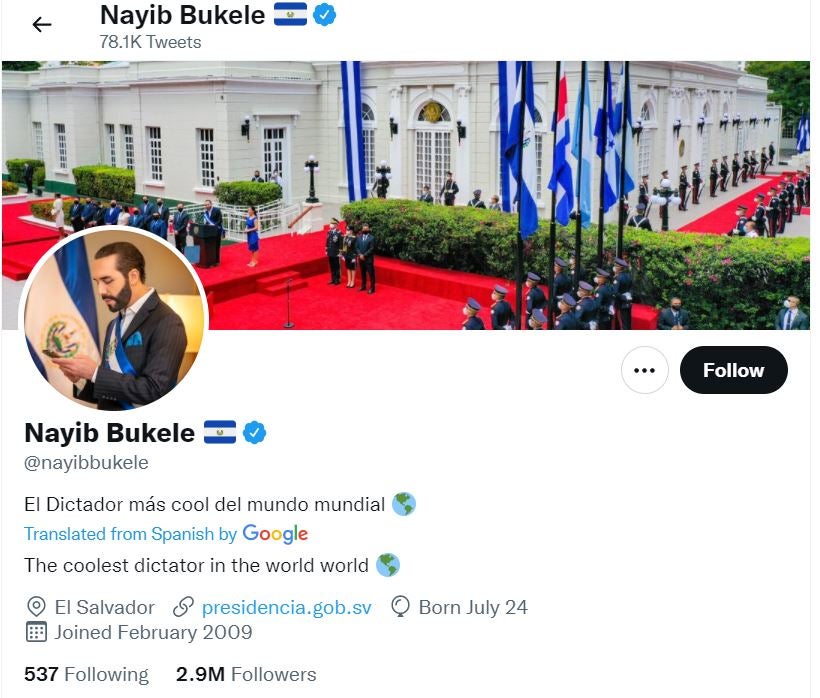El Salvador president declares himself ‘dictator’ in response to first mass protests
Thousands of people marched in capital San Salvador last week protesting Nayib Bukele’s recent decision to make bitcoin legal tender, and alleging that he holds too much power

Your support helps us to tell the story
From reproductive rights to climate change to Big Tech, The Independent is on the ground when the story is developing. Whether it's investigating the financials of Elon Musk's pro-Trump PAC or producing our latest documentary, 'The A Word', which shines a light on the American women fighting for reproductive rights, we know how important it is to parse out the facts from the messaging.
At such a critical moment in US history, we need reporters on the ground. Your donation allows us to keep sending journalists to speak to both sides of the story.
The Independent is trusted by Americans across the entire political spectrum. And unlike many other quality news outlets, we choose not to lock Americans out of our reporting and analysis with paywalls. We believe quality journalism should be available to everyone, paid for by those who can afford it.
Your support makes all the difference.El Salvador's president Nayib Bukele declared himself a dictator on Twitter, days after protests broke out against him in the Central American country.
The president’s Twitter bio currently says: “The coolest dictator in the world.” Though some saw the move as a joke by the president, many others did not find it funny.

There have been no indications that his social media account was hacked.
In fact, the cryptocurrency-loving president, also an active Twitter user, continued to nonchalantly tweet about bitcoin after changing his bio.
Under Mr Bukele, El Salvador became the first country to make bitcoin legal tender.
Thousands of people marched in the capital San Salvador on 15 September to “defend democracy” and “stop violations of the constitution”. Protesters alleged that Mr Bukele held too much power and had weakened the independence of courts.
At that time, the president said that protesters “took to the streets to fight a dictatorship that doesn’t exist”.
Some protesters also raised their voices against the 40-year-old president’s decision to make bitcoin legal tender. Earlier this month, the government rolled out a digital wallet called “Chivo” to handle bitcoin transactions but it has been glitchy and frequently down for maintenance.
The president had maintained his popularity since he entered office in 2019 but Salvadorians now fear that his enthusiasm about cryptocurrencies has indeed taken on a dictatorial tone.
Chivo cash machines were set ablaze as the country marked its 200 years of independence on 15 September.
Following the protest, the president wrote on Twitter: “They say the ‘vandalism’ was the work of ‘infiltrators’, but there has been vandalism in all their demonstrations.”
In another tweet, sharing a video of a ransacked van, the populist leader wrote: “This mobile consulate does not do work for ‘the regime’ or for ‘the dictator’, it is one of the little that our country offers to our diaspora. Why do they destroy it? Why do you hate people so much that you yourself expelled from our country?”
“Changing his Twitter profile to call himself the dictator of El Salvador is a very childish act on the part of the president,” Johnny Wright Sol, legislator and a member of the opposition party, told the Associated Press.
Lawyer Eduardo Escobar of a civic group that focuses on government accountability said this was part of the president’s strategy. “He is trying to ridicule the feelings of the public or the opposition,” Mr Escobar said.
Mr Bukele is not new to controversies.
Last month, the Salvadoran Supreme Court judges recently appointed by his party dismissed a constitutional ban on consecutive presidential terms. This set the stage for Mr Bukele to seek a second term in 2024. Though he has not yet announced such a plan, it is widely expected. The United States had criticised the judges’ ruling as unconstitutional and a blow to bilateral ties.
In January, Mr Bukele briefly changed his Twitter profile picture to an image of actor Sacha Baron Cohen from the movie The Dictator, where he plays the role of a dictator.
Last year, Mr Bukele faced backlash for sending troops into the National Assembly to help push through law and order legislation in the country.
Join our commenting forum
Join thought-provoking conversations, follow other Independent readers and see their replies
Comments